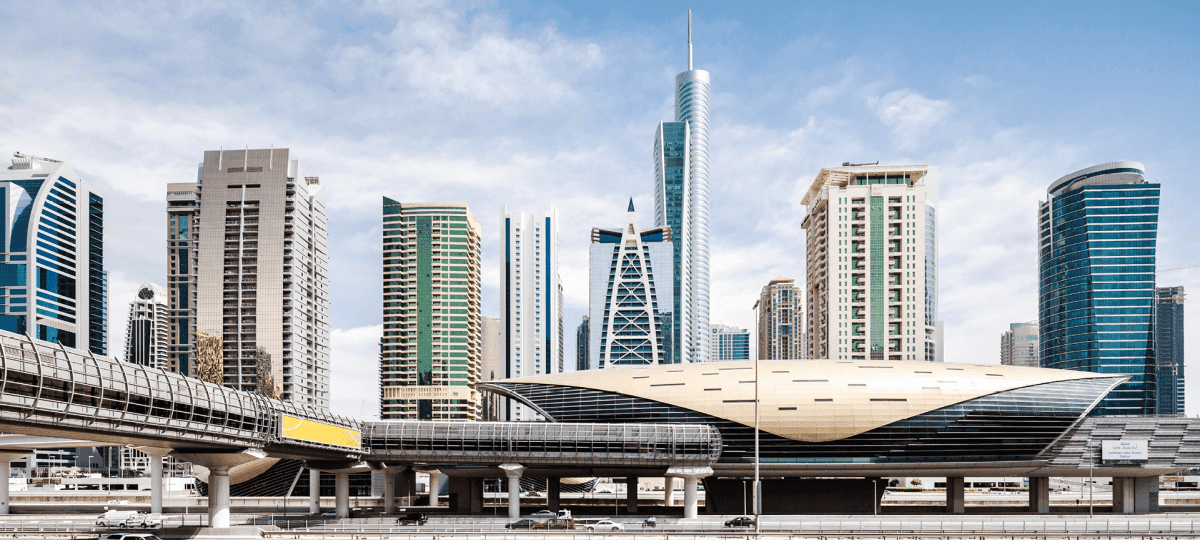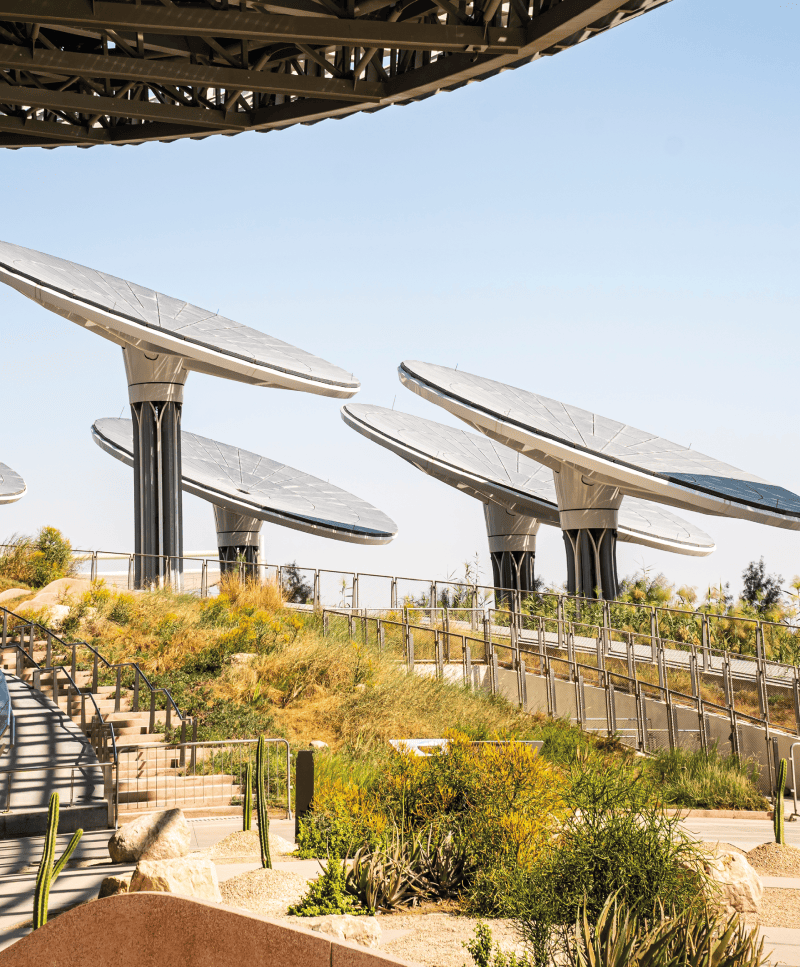Environmental Stewardship
Salik drives Dubai’s net zero ambition by 2050 through free‑flow gates that cut traffic, fuel use and emissions. Plans to make all toll gates solar‑powered will further shrink its carbon footprint in the coming years.

Salik is committed to supporting Dubai’s goal of achieving net zero emissions by 2050 through its focus on environmental stewardship. The company’s operations are designed to reduce traffic congestion, fuel consumption, and greenhouse gas (GHG) emissions, contributing to improved air quality and sustainable urban mobility. Salik’s free‑flow toll gates exemplify this commitment, streamlining traffic flow to minimise vehicle idling times and associated emissions.
A key element of Salik’s environmental strategy is the adoption of renewable energy. Three of its ten toll gates are now partially powered by solar energy, with plans to transition all gates to solar power in the coming years. This shift reduces the company’s reliance on conventional energy sources while supporting Dubai’s broader sustainability objectives.
Salik’s paperless strategy has further enhanced its environmental performance, enabling 99% of customer transactions to occur digitally through the Smart Salik App and website. This initiative saves approximately 4.9 tonnes of CO2e annually by eliminating paper waste and improving operational efficiency.
Energy efficiency
Energy efficiency is central to Salik’s operations and long‑term sustainability goals. The company’s toll gates and headquarters are designed to optimise resource use and reduce energy consumption. Salik’s office at Festival Tower incorporates energy‑efficient features such as motion sensor lighting, a high‑performance HVAC system, and energy‑saving appliances. Biometric security systems have replaced traditional access cards, reducing associated energy consumption.
Salik’s toll gates also play a vital role in its energy efficiency strategy. The Jebel Ali toll gate, a pilot project for renewable energy, receives 21% of its power from solar panels. Two additional toll gates, launched in 2024 at Business Bay Crossing and Al Safa South, are partially solar‑powered. These initiatives mark significant progress towards Salik’s goal of converting all toll gates to renewable energy sources.
To encourage the adoption of electric vehicles, Salik continued to exempt owners from paying the tag activation fee. As of 31 December 2024, the number of EVs with free tags from Salik increased by 27.9% compared to 2023. This initiative supports Dubai’s Green Mobility Strategy and the broader transition to a sustainable transportation system.

GHG emissions
Reducing GHG emissions is a cornerstone of Salik’s sustainability strategy. In 2024, Salik’s operations generated Scope 2 emissions primarily from energy consumption at toll gates, its headquarters, and the data centres. The company is actively working to reduce these emissions by adopting solar energy and other sustainable practices.
Learn more on Salik’s environmental initiatives in the 2024 Sustainability Report